FAQ's
Q: Why should I buy from Millican?
A: Millican Nurseries is THE source for premium quality plant material in New England. We hand-pick material from the top growers across the country, and our solid relationships with those suppliers ensure us first pick from their fields. Our plants may be a little more expensive than some of our competitors, but the slightly higher price yields an outstandingly better plant.
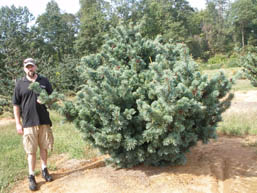 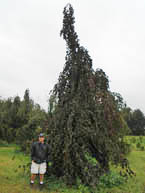 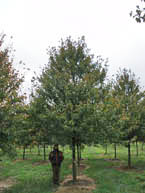
A: The selection of plant material at Millican Nurseries is one of the most extensive around. We carry everything from one gallon perennials up to 8" (and sometimes larger) caliper trees. Just to give an example, we carry 20 different crabapple cultivars. Our specimen evergreens are unmatched in the region, and our Japanese maple selection is one of the broadest in New England. If we don't have the exact cultivar of plant you are looking for, we probably have at least three others which are comparable. Let our sales staff guide you through our inventory to find the plant that meets your requirements. If there is a plant that you use extensively that we don't carry, let us know and we can find it.
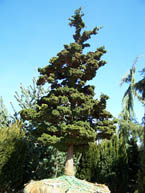 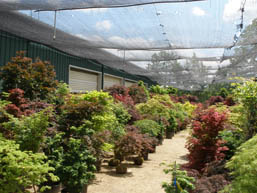 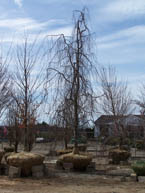
A: One word; service. Our sales team has many years of experience. Allow us to be your "buyer" by selecting your plants according to your needs, and save you a trip to Chichester, NH. We understand that your time is valuable, and every minute you spend at our nursery is lost time for you.
If you do need to come to see us, we can guarantee that not only will the service you receive here be exceptional, but you will have fun too. We do not work on commission, so there will be little sales pressure. We do not split up our customers based on geographical location; it is based on satisfying relationships. If you meet a member of our staff that you get along with really well, then he/she will be your sales representative.
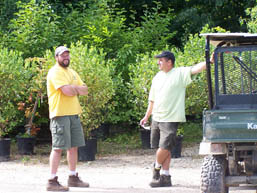
Q: Where do your plants come from?
A: We grow about 25% of our trees and shrubs right here in one of our three growing fields in surrounding towns, and 30% of our containers from bare root at the main farm in Chichester. The rest we buy in from top-quality growers in British Colombia, Washington, Oregon, Minnesota, Ohio, North Carolina, Virginia, Maryland, New Jersey, Pennsylvania, New York, Connecticut, Rhode Island, Massachusetts, and New Hampshire.
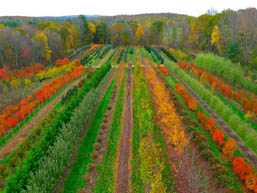 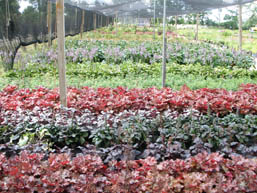
Q: Where does your irrigation water come from?
A: Nearly all of the rainwater that hits our soil or our buildings ends up in our irrigation ponds. We have gutters and catch basins that direct the rainwater to our settling pond. Once the sediment has settled out, the water from this pond is gravity-fed to our large lower pond which is where our diesel pump-house is located. Most of the nursery is on drip-irrigation, reducing water waste. We do still have overhead in some places where drip is inconvenient. These places include our loading docks and our container beds where the hazard of tripping over spaghetti lines is unacceptable. For the increased water pressure needed to run these over-head sprinklers, we do have three artesian wells. We inject a small amount of chlorine into our irrigation water to kill parasites and diseases as well as prevent the build-up of algae in our drip lines.
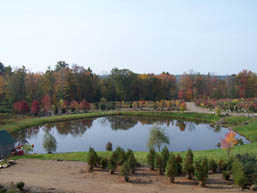
Q: What do you do with your plants in the winter?
A: All of our hardiest plants are tied up and laid down in 200' long by 15' wide rows. They are covered up with insulating blankets made of 1/4 inch thick felt and then covered with white poly film. This protects the plants from desiccating winter winds as well as maintaining a relatively consistent temperature within the pile. Our more tender plants such as Rhododendrons, Hydrangeas, Japanese Maples, Boxwoods and Hollies to name a few are stored in one of our two barns. These barns are kept at around 20° F. This whole winterizing process takes the entire staff at the nursery about one and a half months to complete.
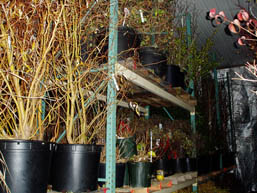
Q: How many acres do you have?
A: Our wholesale yard in Chichester is about 60 acres. We also have three growing fields in surrounding towns adding an additional 180 acres.
Q: How many employees do you have?
A: We currently have over 60 employees, we have had as many as 80. Most come from surrounding areas, but we also employ staff from as far away as Nepal and Afghanistan.
|













